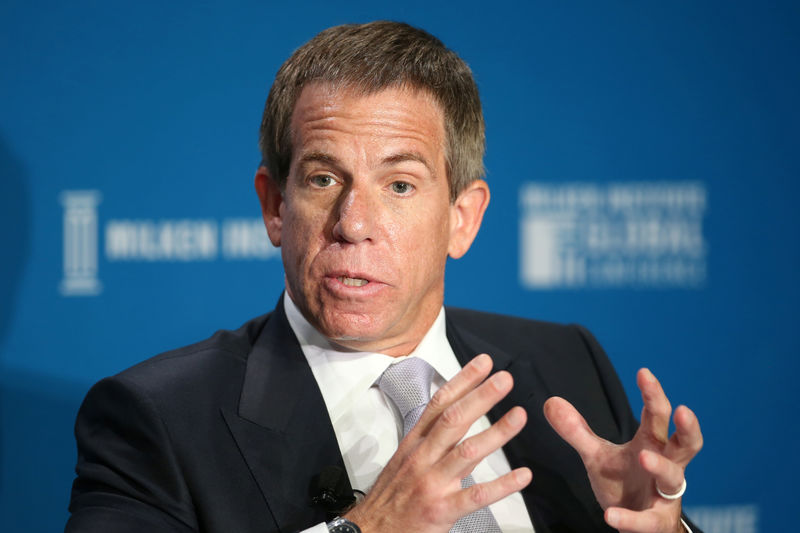 © Reuters. Richard Schimel, Head of Aptigon Capital, a Citadel Company, speaks during the Milken Institute Global Conference in Beverly Hills
© Reuters. Richard Schimel, Head of Aptigon Capital, a Citadel Company, speaks during the Milken Institute Global Conference in Beverly HillsBy Svea Herbst-Bayliss
NEW YORK (Reuters) – The founders of Diamondback Capital, one of a handful of hedge funds touched by the U.S. government’s insider trading probe, have reunited and are working on a new investment project, people familiar with the matter said.
Richard Schimel and Larry Sapanski are in the early stages of mapping out a new business nearly six years after shutting down Diamondback when investors pulled out roughly one quarter of the firm’s capital.
In 2012 the pair told investors they were pursuing the “most prudent course” by winding down their fund, which managed $6 billion at its peak. Now they are back and generating considerable buzz among institutional investors looking for ways to diversify returns as interest rates are expected to rise and the stock market’s post-financial crisis rally is continuing, people familiar with the matter said.
A spokesman for the pair declined to comment. Schimel and Sapanski could not be reached for comment.
The men once worked together at Steven A. Cohen’s SAC Capital Advisors, and became one of the most successful spinouts from SAC.
Diamondback, which was founded by Schimel, Sapanski and Chad Loweth, returned an average 9 percent a year after fees over the fund’s 7-1/2-year lifetime. The firm charged a 2 percent management fee and took 30 percent of the profits in performance fees. The fund made money in 2008 and had only one year of losses, when it slipped 3 percent in 2011.
Potential investors who have met with the men say they have a strong story plus a good track record and a history of having worked well together.
After closing Diamondback, the men went their separate ways, with Schimel launching a fund called Sterling Ridge while Sapanski ran a fund called Scoria Capital.
Most recently Sapanski invested his personal fortune and Schimel ran hedge fund Citadel’s Aptigon stock unit.
Diamondback became caught up in scandal when two former employees were charged with participating in an insider trading ring in 2012. The firm paid $9 million to settle the charges, but the money was refunded by the U.S. Securities and Exchange Commission after the charges were overturned.
Fusion Media or anyone involved with Fusion Media will not accept any liability for loss or damage as a result of reliance on the information including data, quotes, charts and buy/sell signals contained within this website. Please be fully informed regarding the risks and costs associated with trading the financial markets, it is one of the riskiest investment forms possible.
Source: Investing.com




























